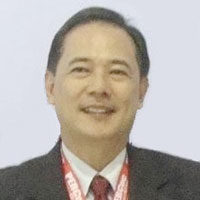LATELY, the Commission on Audit's (CoA) reports caught the attention of President Rodrigo Duterte, who said, "Sinong nag-o-audit ng CoA?" This is a question of who audits the auditor! In private companies, you would find an internal auditor, usually an organic employee, as well as an independent external auditor doing regular financial and operational assessments. In short, there are watchdogs in private companies. Among the independent constitutional bodies under the 1987 Constitution, the CoA has no watchdog to look over its reports pertaining to its observations and findings on the budget utilization of government offices. The other two constitutional bodies, the Commission on Elections (Comelec) and the Civil Service Commission (CSC), are audited by CoA.
Aside from CoA, the Comelec has more watchdogs than you could ever think of. But from 1940 until 1983, the Comelec had no watchdog except the General Auditing Office, which later became the CoA. Providentially, an election watchdog was established in 1983, the National Movement for Free Elections (Namfrel). In 1985, the concept of an election watchdog was formally recognized and institutionalized by virtue of the Omnibus Election Code of the Philippines or the Batas Pambansa (BP) Blg. 881. It stipulates in its Section 180: "Other watchers. - The duly accredited citizens' arm of the Commission [on Elections] shall be entitled to appoint a watcher in every polling place. Other civic, religious, professional, business, service, youth and any other similar organizations, with prior authority of the commission, shall be entitled collectively to appoint one watcher in every polling place."
Continue reading with one of these options:
Ad-free access
P 80 per month
(billed annually at P 960)
- Unlimited ad-free access to website articles
- Limited offer: Subscribe today and get digital edition access for free (accessible with up to 3 devices)


